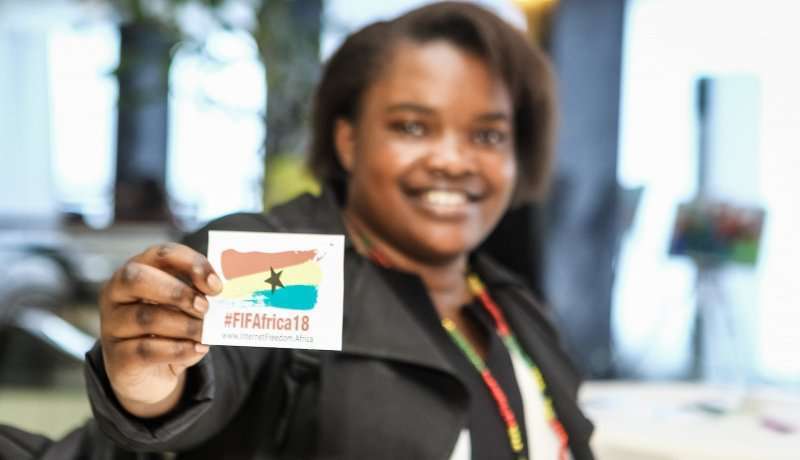FIFAfrica |
There is rising awareness among Africa’s growing online community about the use of the internet to defend human rights, complement independent local media, strengthen democratisation, and demand accountable and transparent governance. However, there are limited avenues for Africans to participate in discussions that shape internet governance. While global convenings such as the Internet Governance Forum (IGF), the Stockholm Internet Forum (SIF, the Internet Freedom Festival (IFF) and RightsCon discuss the internet freedom landscape – including in Africa – attendance by African stakeholders is often limited.
Since 2014, the Collaboration on International ICT Policy for East and Southern Africa (CIPESA) has convened the annual Forum on Internet Freedom in Africa (FIFAfrica) to provide a pan-African space where discussion at the global level can be consolidated at Africa-wide level, drawing a large multi-stakeholder audience of actors from within and beyond the continent.
This year’s edition of FIFAfrica was held in Accra, Ghana on September 26-28, 2018. It brought together 280 participants from 47 countries to deliberate on gaps, concerns and opportunities for advancing privacy, access to information, free expression, non-discrimination and the free flow of information online on the continent. Hosted in partnership with the Media Foundation for West Africa (MFWA), FIFAfrica18 was the first to be held in West Africa. Previous Forums have been hosted in East Africa and Southern Africa.
Through panel discussions, workshops, exhibitions and lightning talks, the proceedings of FIFAfrica18 explored common strategies for impactful work in promoting internet freedom in the face of persistent affronts to the rights of African online users.
In his keynote address titled “Many African Governments Hate the Free Internet – And That Is A Very Good Thing”, veteran journalist, publisher and curator of Africapedia, Charles Onyango-Obbo noted that the Internet in Africa “had finally seized from the state narrative-making power”, making “political control difficult”. According to Obbo, governments across the continent appreciate the power of the internet hence their efforts to suppress its use. Calling for the internet’s liberation, he urged stakeholders to “get on their keyboards and fight” against the growing trend of censorship, surveillance and regulation.
This call to action resonated throughout sessions on addressing gender-based violence online; the potential of the internet for civic agency and eGovernance; the role of community networks in bridging the digital divide; safety and security for critical internet users; pushing back against internet shutdowns; local content development; curbing cybercrime; promoting online consumer rights; privacy and data protection; advocacy at global level; and fighting misinformation/fakenews, among others.
The particularly poignant state of internet freedom in some African countries was illustrated by frontline experiences shared from Ethiopia and Cameroon. The Zone 9 bloggers collective shared their plight of repression, surveillance, censorship and incarceration under Ethiopia’s repressive regime. The recent release of their members and their continued commitment to human rights advocacy in the context of Ethiopia’s ongoing reforms were perhaps the strongest indication that the spirit to fight should live on. A special edition of the Blacked Out YouTube video on the devastating internet shutdowns in Cameroon was screened at FIFAfrica and exemplified the internet’s potential to challenge and expose authoritarian rule.
In commemoration of the International Day for Universal Access to Information (IDUAI), UNESCO hosted a session on access to information through the lens of the Internet Universality Indicators. The indicators are a tool designed to enrich stakeholders’ capacity for assessing internet freedom and development, broaden international consensus, and foster access to information, online democracy and human rights. As Dorothy Gordon, Chairperson of the Information for All Programme (IFAP), noted during the session, “the lack of information literacy in African countries has created terrible fear in the population regarding the use of new communication methods and internet-enabled devices. The Internet Universality Indicators will point out existing obstacles to access the internet and provide governments with key areas for improvement.”
Furthermore, FIFAfrica also served as the platform for the launch of the 2018 edition of the annual State of Internet Freedom in Africa research report, which CIPESA has produced since 2014. This year’s report focused on data protection and privacy in select African countries. Previous editions researched intermediaries’ role in advancing internet freedom, the economic cost of shutdowns, government strategies to stifle citizens’ digital rights, and citizens’ perceptions on privacy, access and security. The reports are fundamental for a keener understanding of the issues affecting internet freedom in the respective countries, and form a strong basis for action plans on promoting internet freedoms in these countries.
Beyond raising awareness of the need to advance internet freedom, FIFAfrica also focuses on skills building. Practical workshops held as pre-events the Forum included one on strategic litigation led by the Media Legal Defence Initiative (MLDI), which aimed to build the capacity of internet activists to collaborate across disciplines to more effectively push back against regressive legal frameworks that are not conducive to access and use of the internet in Africa.
Meanwhile, CIPESA and Small Media hosted a workshop on internet freedom and the Universal Periodic Review (UPR) aimed at supporting civil society organisations across Africa to engage with the UPR process through research, capacity developmen,t and developing tools to support internet freedom advocacy. Further, the Localization Lab also hosted a localisation sprint to translate digital security tools and resources into Amharic, Fante, Igbo, Swahili, Tswana, Twi, and Yoruba to support the education, training, and adaptation of digital security and circumvention tools in the region.
The outcomes of the Forum are expected to support the development of substantive inputs to inform recommendations and subsequent follow up on human rights online happening at national level, at the African Union and the African Commission on Human and People’s Rights (ACHPR), and the Human Rights Council. Moreover, it is anticipated that participants will use the skills, knowledge, and networks from FIFAfrica to advance internet freedom research and advocacy in their respective countries and regions.

